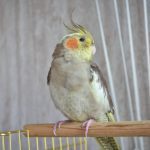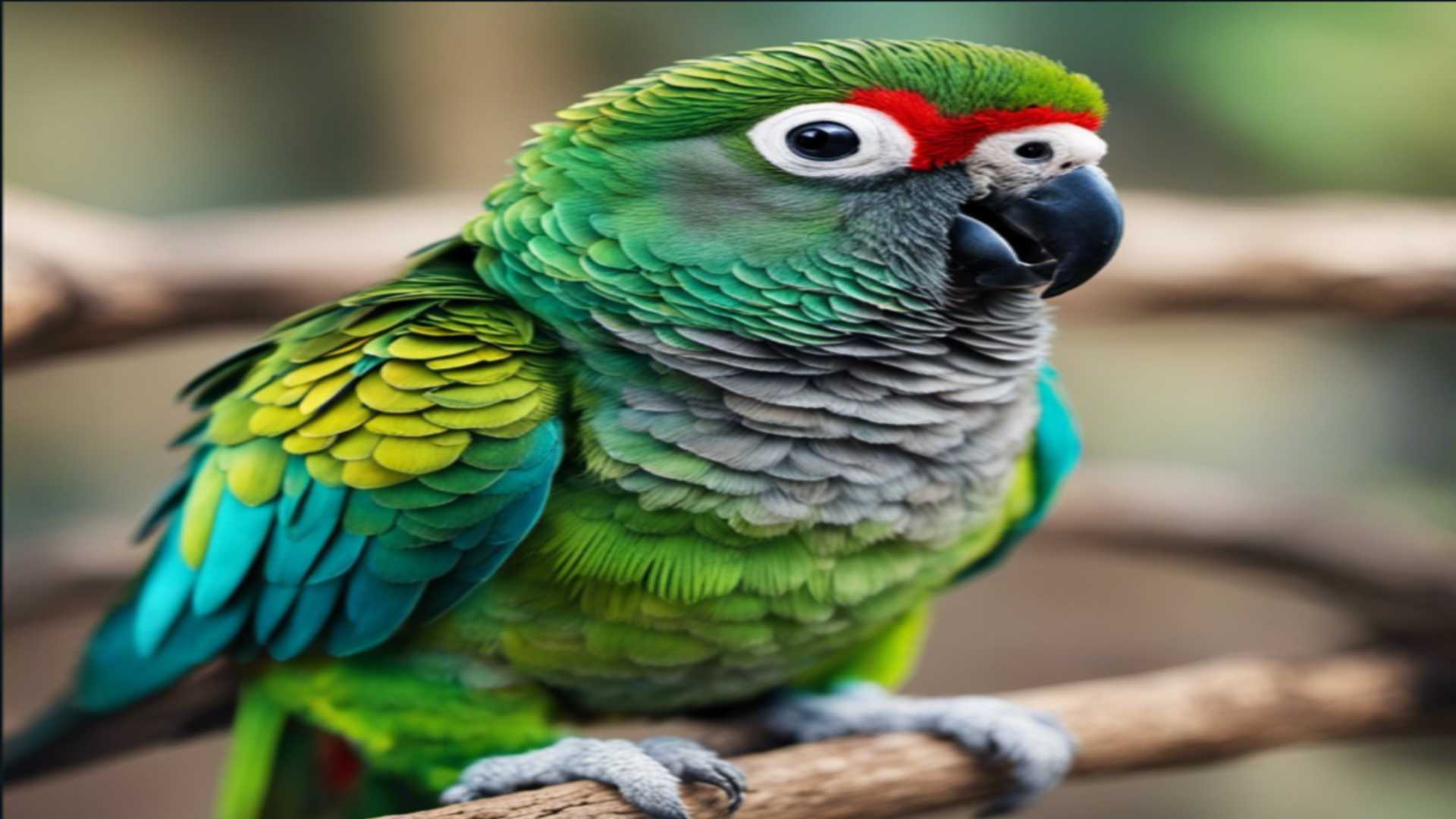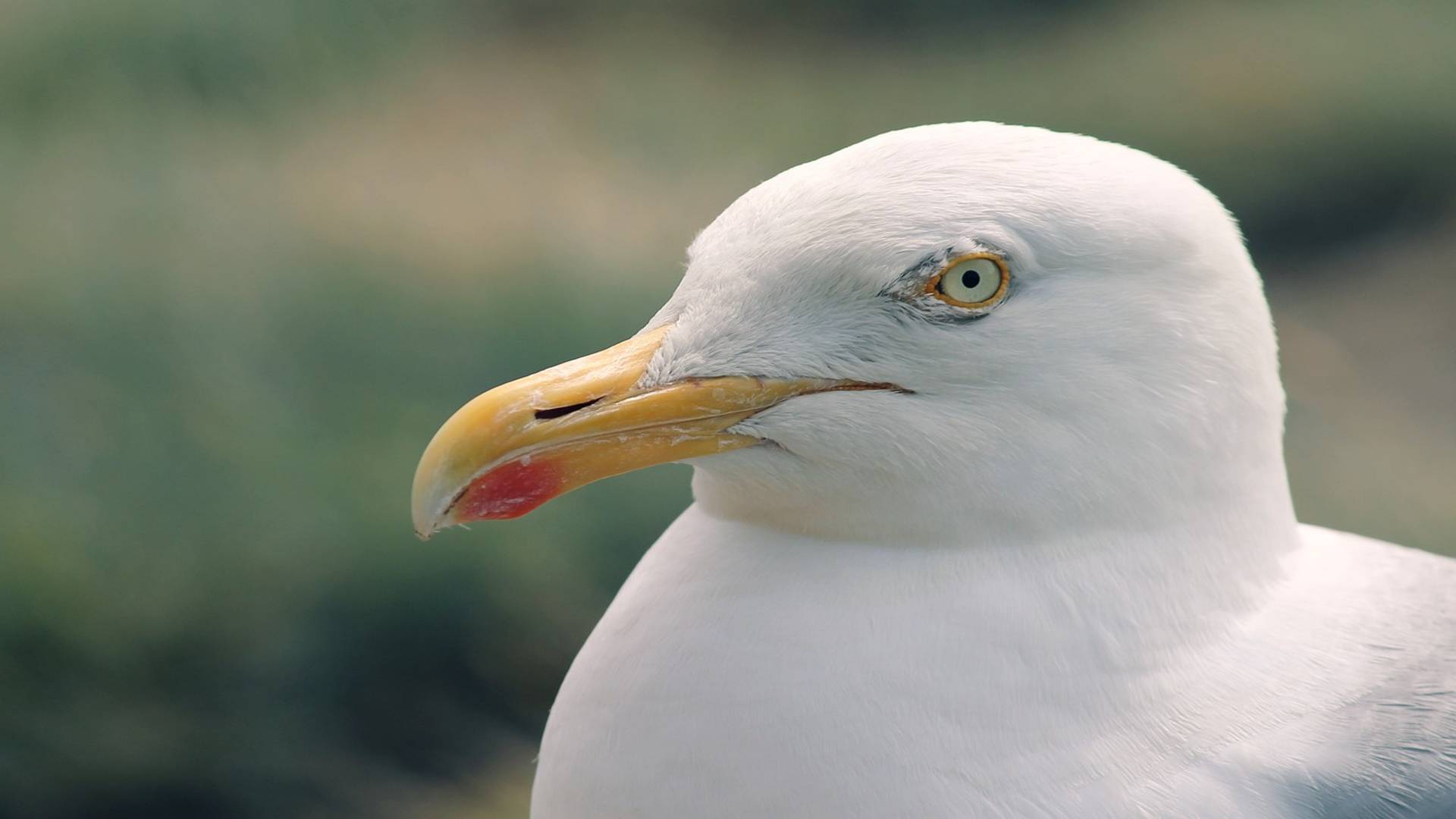Cockatiels are intelligent and social birds, and they like interacting with their human companions, but sometimes their chirping can become excessive. If your cockatiel won’t stop chirping, there could be a few different reasons why.
So I decided to research the topic and figure out why your cockatiel won’t stop chirping.
Here is what I found out:
In general, cockatiels chirp to communicate with other birds. They may also be trying to tell you something, like that they’re hungry or need water. Or they could simply be happy and content.
Cockatiels might also chirp more when they’re happy or excited, or when they’re trying to tell you something important.
For example, if your cockatiel is perched on the edge of his cage and starts chirping rapidly, it might be trying to tell you that it’s time for its breakfast!
But there’s more to learn about cockatiel’s chirping habits.
In this article, we will discuss some of the most common reasons why a cockatiel might start chirping excessively. We will also provide tips on how to address the issue.
Let’s jump into it.
Why does your cockatiel keep chirping?
Cockatiels are social birds that chirp to communicate with their human or avian companions.
If a cockatiel is chirping nonstop, it could be trying to get attention, feeling lonely, anxious, or bored. Providing toys, social interaction, and a stimulating environment can help alleviate excessive chirping.
Is it normal for a cockatiel to chirp so much?
If you’ve ever owned a cockatiel, you know that they can be very vocal birds. But why do they chirp so much?
In the wild, cockatiels use their calls to communicate with each other. They make different sounds to indicate danger, to find a mate, or simply to share their location. In captivity, cockatiels often chirp out of boredom or loneliness.
They are social birds that need companionship, and when they don’t have it, they will often turn to their human owners for attention.
Cockatiels, in my opinion, are much happier when they are in pairs rather than alone.
I have a recent article that goes more into depth about cockatiels being kept in pairs and the challenges that come with it so be sure to check that out if you are considering getting a second cockatiel.
Is there for you to read it on my site. To access it, simply click the link.
How do you stop your cockatiel from screaming?
Cockatiels will also chirp when they are excited or happy, so it’s a good idea to try to provide your bird with plenty of stimulation. If your cockatiel is chirping excessively here is what you can do:
- Determine why your cockatiel is chirping so much. You can do that by paying attention to the circumstances under which your bird is chirping. For example, if your cockatiel starts chirping when you leave the room, it might be because he’s lonely and wants your attention.
- Once you’ve determined the reason, address it accordingly. If your cockatiel is bored, try giving it more toys to play with or spend more time interacting with it.
- Get a companion. Nobody likes to be alone and certainly not cockatiels. If you can’t spend more time with your cockatiel, consider getting him a companion.
- Create a positive environment. Cockatiels are very sensitive to their environment and can get stressed easily. Make sure that your bird’s cage is in a quiet place where he won’t be disturbed.
You should also try to make your cockatiel’s environment as stimulating as possible. Provide it with plenty of toys, perches, and playthings.
So if you’ve tried all these things and your cockatiel is still chirping excessively, there are a few other things you can try.
First, make sure that your cockatiel has a good view of the outside. Cockatiels are naturally curious birds, in fact in the wild, they like to perch on top of trees to have a better view of their surroundings.
But that should be used just as a last resort because they really do love to watch what’s going on outside!
Cockatiel chirping meaning
The constant cockatiel chirping means that the bird is likely feeling anxious or stressed, and it is important to assess the environment and provide comfort to help calm them down.
In fact, cockatiels use a variety of different sounds to communicate their emotions. For example, they might make a softer chirping sound when they’re content, or a louder one when they’re feeling agitated.
Generally speaking, when a cockatiel chirps, it’s most likely trying to get your attention for one reason or another.
But what does this constant cockatiel chirping actually mean? Well, there are a few theories.
One possibility is that cockatiels chirp to communicate with other members of their flock.
In the wild, cockatiels live in large flocks, and they need to be able to communicate with each other in order to stay together.
Another theory is that cockatiels chirp in order to attract mates. By making themselves as visible and audible as possible, they stand a better chance of finding a suitable partner.
With that being said, let’s explore the meaning behind some of the most common cockatiel sounds:
Shouting
Some cockatiels shout out of excitement or frustration, while others do it to get attention.
Chirping
As we mentioned before, chirping is a way for cockatiels to communicate. It can mean different things depending on the context.
For example, if your cockatiel is chirping rapidly and excitedly, it might be because he’s happy or excited.
Chirping softly
In general, a softly chirping cockatiel is a content cockatiel. This is their way of showing you that they’re happy and comfortable.
Cockatiels are vocal birds, and they use a variety of sounds to communicate with their flock mates.
One of the most distinctive sounds is a quiet, high-pitched chirp that is often used as an alarm call.
This sound is produced by rapidly vibrating the bird’s vocal chords, and it can be heard from far away. cockatiels also use this sound to communicate with other birds in their flock.
If you hear your cockatiel making this sound, it’s important to pay attention to the context. If the bird is alone in its cage, it may be bored or lonely and trying to get your attention.
However, if the bird is perched on a branch or in a tree, it may be warning its flock mates of danger.
In either case, it’s important to provide your cockatiel with plenty of opportunities to socialize and explore its environment to prevent boredom and loneliness.
Purring
Cockatiel purring is a sign of affection. When a cockatiel purrs, it’s usually trying to get your attention or show you how much it loves you.
If you’re not paying attention to your cockatiel, it may start purring loudly to let you know that it wants some love.
Cockatiels also purr when they’re content and happy. If you notice your cockatiel purring while you’re petting it or holding it, it’s a good sign that it’s enjoying your company.
Whistling
Cockatiels can also whistle to get your attention or show their affection. In addition, whistling is a way for cockatiels to communicate with other birds. If you hear your cockatiel whistling, it’s probably trying to get your attention.
What cockatiels chirp for?
Cockatiels also use chirping to communicate with other members of their flock. For example, they may use a soft chirp to ask another bird to come closer, or a loud chirp to warn of danger.
Chirping is just one of the many ways that cockatiels express themselves, and it can be a joy to listen to your feathered friend start up a conversation.
Cockatiels are such cheerful birds, always seeming to sing with a smile on their face. But have you ever wondered what exactly they are chirping for?
It turns out that cockatiels use their chirping for a variety of purposes.
One of the most important is to maintain communication with their flock mates. Cockatiels live in social groups in the wild, and they rely on chirping to stay in touch with each other.
They also use chirping to express their emotions, whether they are happy, excited, or even worried. In fact, some experts believe that cockatiels may even chirp in order to soothe themselves when they are feeling stressed.
So next time you hear your cockatiel chirping, just remember that they may be trying to tell you something!
What does it mean when cockatiels chirp a lot?
When it comes to interpreting cockatiel noises, it’s important to take into account the context in which the chirping is occurring.
For example, if your cockatiel is chirping loudly and frequently while perched near the door, it’s likely that he’s trying to tell you that he wants to go outside.
However, if your cockatiel is chirping softly and calmly while perched on your shoulder, it’s likely that he’s content and happy.
In general, cockatiels chirp more when they’re excited or anxious, so if your bird is chirping a lot, it’s a good idea to take a look at what might be causing him stress.
Is there a new pet in the house? Has he been getting enough attention? Once you’ve identified the source of his stress, you can work on alleviating it and hopefully reduce the amount of chirping.
What can I do if my cockatiel is chirping a lot?
If your cockatiel is chirping a lot, there are a few things you can do to help reduce the noise.
- Make sure that the bird has plenty of toys and activities to keep it occupied. A bored bird is more likely to start chirping out of boredom or frustration.
- Try to avoid making sudden loud noises near the bird, as this can startle it and cause it to chirp in alarm.
- Finally, if the bird is still noisy after taking these measures, you might want to consider consulting a veterinarian.
Also, provide your cockatiel with plenty of opportunities to socialize and explore its environment to prevent boredom and loneliness, for example:
- Put your bird near the window.
- Take your bird out of the cage for at least an hour a day.
- Give your bird new toys to play with.
This way you’ll provide your cockatiel with mental stimulation, which can help reduce boredom and the urge to chirp excessively.
Why is my cockatiel chirping at night?
Cockatiels are very social birds and love to chatter. They are also more active during the daytime, so it’s not unusual for them to chirp at night. There could be several reasons why your cockatiel is chirping at night.
One possibility is that your bird is bored and wants some attention.
Cockatiels need a lot of mental stimulation and interaction, so if you’re not spending enough time with your bird during the day, he may start chirping at night to get your attention.
Try adding some new toys or perches to his cage, or spending more time playing with him during the day.
Another possibility is that your cockatiel is hungry.
Cockatiels are grazers and like to have a constant supply of food available, so it’s possible that your bird is chirping at night because he’s looking for a late-night snack.
Try putting some food in his cage before you go to bed, or giving him a small amount of food before you turn off the lights.
One thing to be aware of is that cockatiels can be very sensitive to changes in their environment, so it’s possible that your bird is chirping at night because he’s feeling stressed or anxious.
If you’ve recently moved to a new house or made other changes to your bird’s environment, he may start chirping at night as a way of dealing with the stress.
Try to keep your bird’s environment as stable and consistent as possible, and make sure he has plenty of toys and perches to help him feel comfortable.
Why does my cockatiel scream when I leave the room?
There could be a few reasons why your cockatiel screams when you leave the room. It could be that your bird is feeling anxious or scared when you’re not around, which is not uncommon.
Cockatiels are social creatures and thrive on attention and companionship, so it’s possible that your cockatiel is simply missing you when you’re gone.
Conclusion
We have learned that cockatiels chirp more when they’re excited or anxious and that there are a few things you can do to help reduce the noise.
We have also learned that cockatiels are more active during the daytime, so it’s not unusual for them to chirp at night.
If your cockatiel is chirping at night, there could be several reasons why, including boredom, hunger, or stress.
Finally, we have learned that cockatiels can be very sensitive to changes in their environment, so it’s important to keep their environment stable and consistent.
If your cockatiel is excessively chirping, it’s important to determine the cause so that you can address the issue.
If you can identify and correct the underlying problem, your cockatiel will likely stop chirping altogether.





